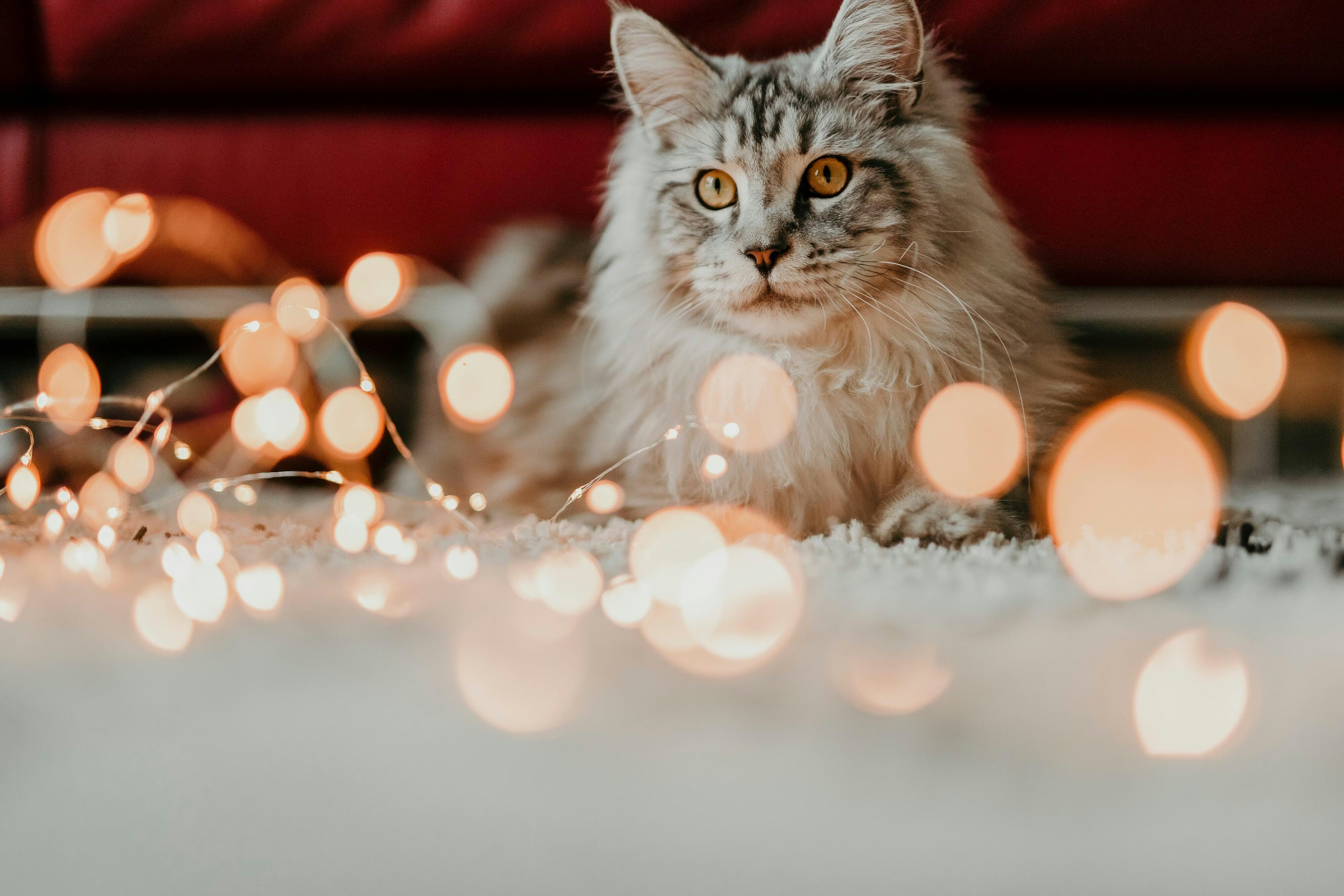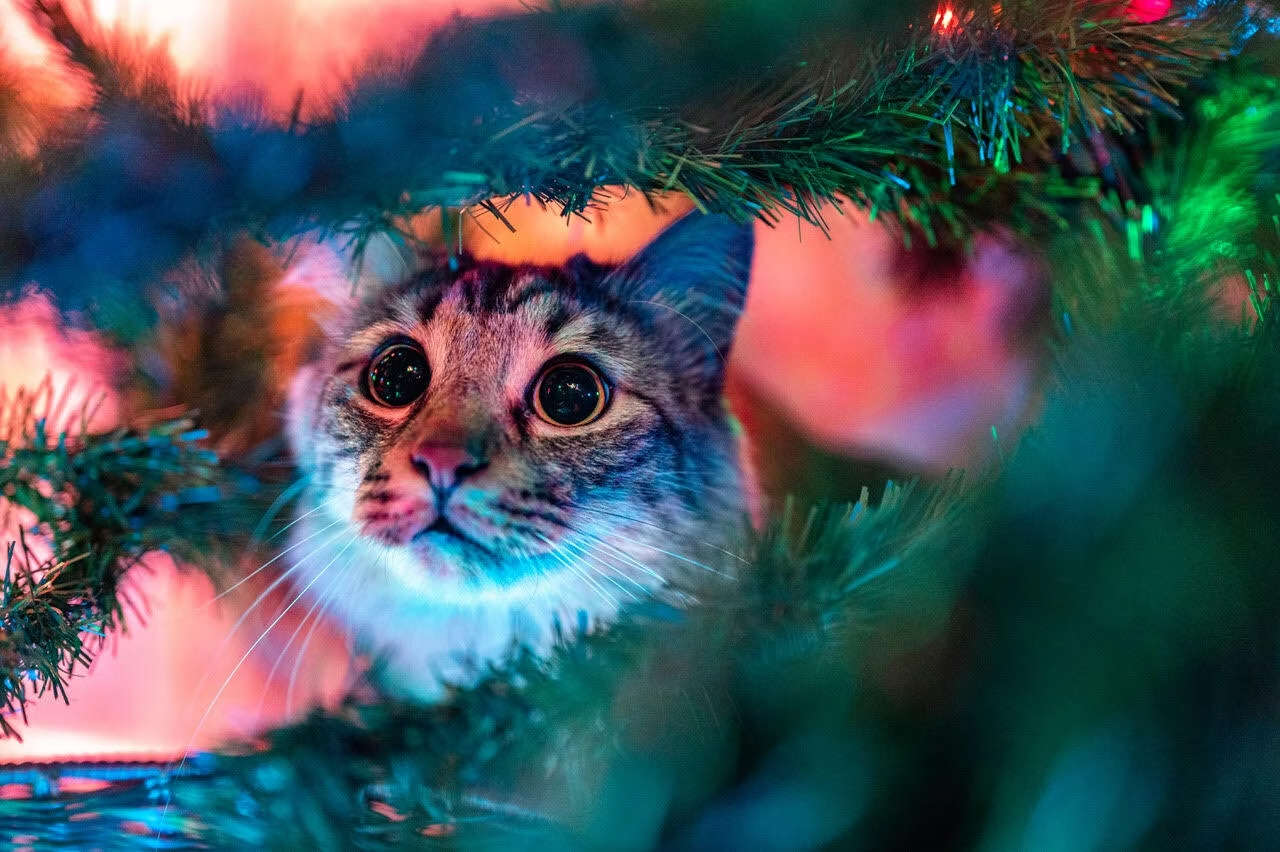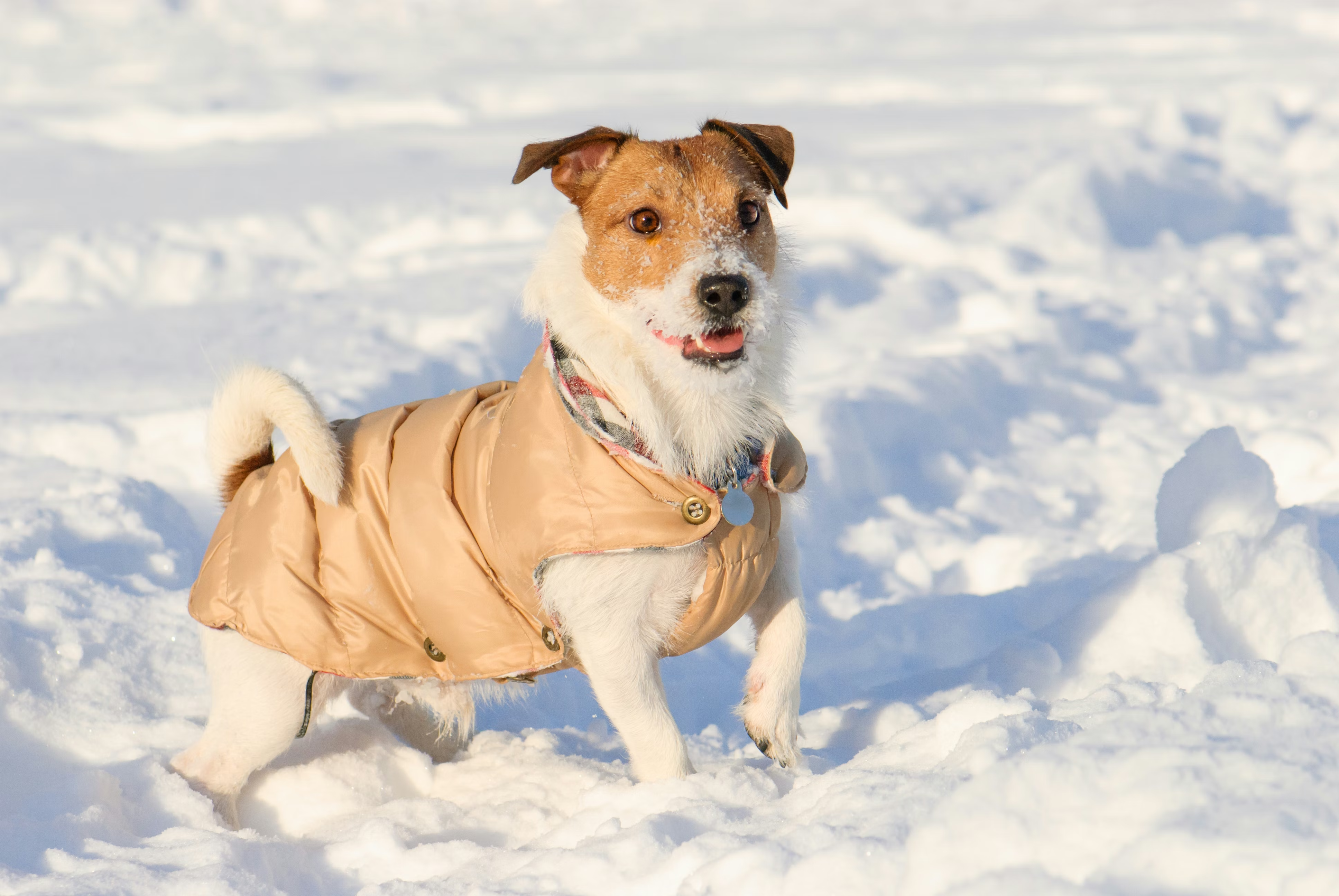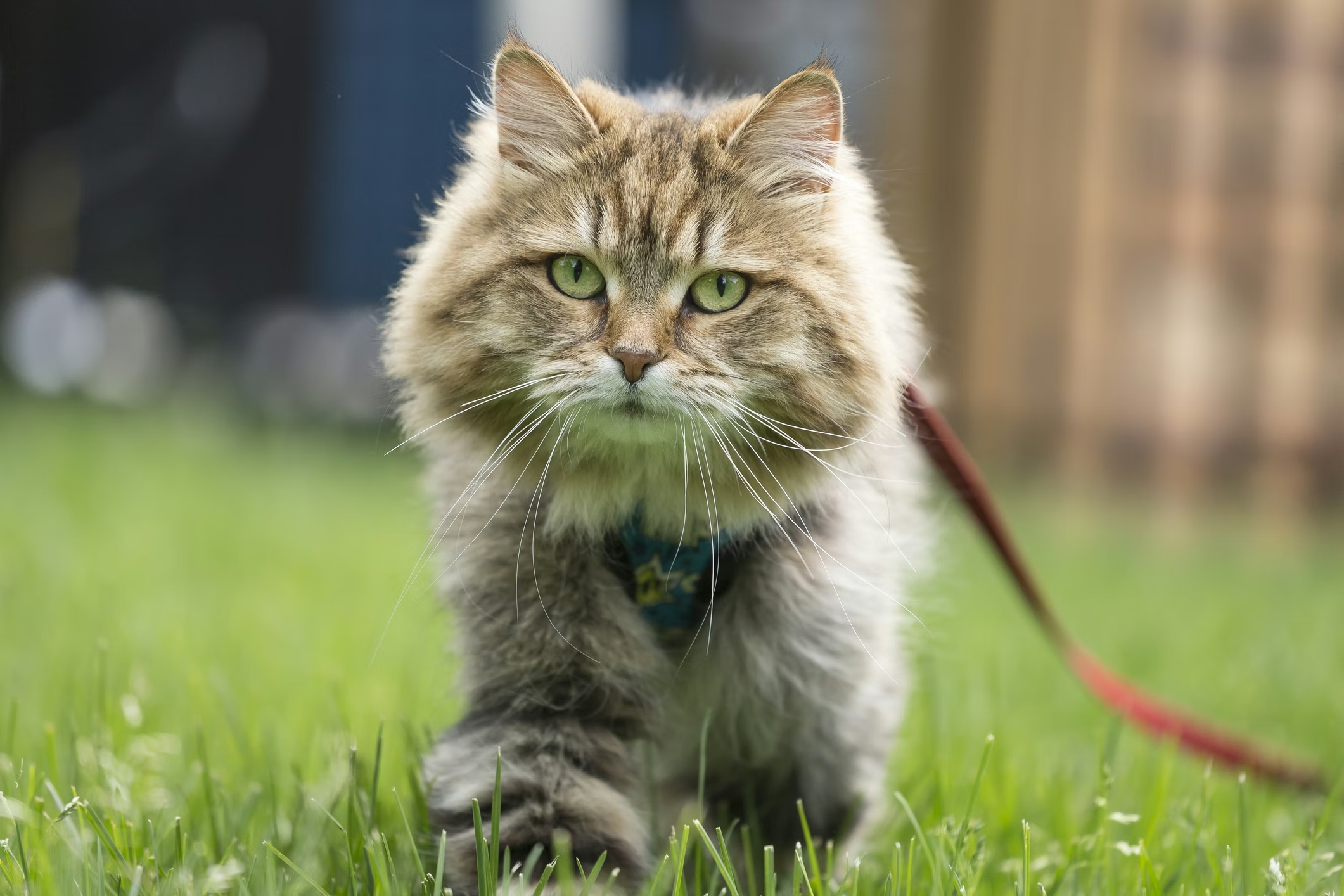For some, the holiday season is the most wonderful time of the year. For many pets, however, the holidays present some unique challenges. But don’t worry, risks can be managed with a little planning.
As you prepare for celebrations or time with family, keep these pet safety recommendations in mind.

Take precautions with holiday decorations.
The sights and smells of holiday decor may contribute to the festive feeling of the season. But they may also create real dangers for your pet. Here are a few common risks to watch out for.
- Tinsel is pretty (and particularly appealing to cats), but if your pet ingests it, it can require surgery or even be deadly.
- Lights and other electrical decorations may tempt tenacious chewers. But they’ll give a painful shock and, if swallowed, can cause internal issues.
- Potpourri can cause digestive upset if eaten, as it often contains toxic essential oils.
- Christmas trees should be secured so that they don’t accidentally topple over. It’s also important to keep your dog away from the water pan, especially if you’ve mixed in additives. And keep in mind that some Christmas trees are sprayed with preservatives.
- Ornaments may look like toys to your pet. But if eaten, they can cut your pup’s mouth or cause serious gastrointestinal problems. Cats are less likely to chew ornaments, but they may knock them off the tree. Broken ornaments are not only a bummer for the family, but could also leave a mess of sharp pieces that can cut your pet’s paws.
- Mistletoe and holly are toxic to pets (as are many plants). So, if you put these festive plants out, be sure to hang them out of reach.
- Candles pose a fire risk if you’ve got an enthusiastic tail wagger or curious kitty that’s drawn to the flickering flames.
- Essential oils—including citrus, cinnamon, and peppermint oils—can cause respiratory issues, or at the very least, overwhelm your pet’s sensitive nose (something to consider if you like to use a diffuser).
- Gift wrap and packaging may be fun to shred (and the boxes are certainly fun hiding spots for cats). But if ingested, these materials may cause digestive blockages.

Calm your dog with exercise.
The holidays can be a hectic time of year thanks to the added hustle and bustle. And if you’re getting frequent gift deliveries, your doorbell may ring more often than normal.
Just like people, dogs react differently to changes in schedule and environment. One of the best things you can do to help keep your dog from feeling overwhelmed during these busy days is to make sure they get plenty of exercise and mental enrichment.
Playing a game of fetch or taking your dog for a walk around the neighborhood will help them burn off energy (and you’ll probably benefit from the fresh air, as well). Just as important as physical exercise is mental stimulation. Food puzzles and toys can keep dogs occupied and give them something to focus on other than the added activity in the home.

Create a quiet space for your pet.
Strange noises, packed households, and unfamiliar guests can make many cats and dogs nervous. Make sure your pet has a safe, calm space to retreat if the chaos of the holidays gets overwhelming. And, be sure to let your guests know if your cat or dog is shy and prefers not to be handled (or your pet may find their own less-than-friendly way of conveying that information themselves).

Keep holiday feasts out of your pet’s reach.
If your pet is normally food-motivated, they may go into overdrive during the holidays when there is an abundance of food around. (Especially if they have the POMC gene mutation, which you can test for.)
Low tables are never a safe place to leave snacks unattended. But higher locations can also be fair game for a determined dog or counter-cruising cat. Don’t underestimate your pet’s ability when turkey bones and meat scraps are involved.
These food heists not only disrupt your dinner (and cut into your leftovers) but also put your pet’s health at risk. Bones are a choking hazard. Chocolate or sugar-free sweets that contain xylitol and certain common ingredients, such as garlic and onions, can be toxic to dogs or cats. And fatty foods—or just too much food in general—can upset your pet’s tummy or, worse, cause pancreatitis and a trip to the vet.

Protect your pets from colder weather.
If you get snow and ice where you live, make sure your dog is prepared for the chilly weather. Some dog breeds, such as Siberian Huskies, Alaskan Malamutes, and Chow Chows, have thick coats that protect them from the elements. But other breeds are much more vulnerable to cold weather.
If your dog has a thin, short coat, short legs that keep them close to the cold ground, or minimal body fat to keep them warm, it’s a good idea to put them in a coat (or holiday sweater!) when they’re outside.
As for cats, it’s best to keep them indoors as much as possible in cold weather. Cats will look for sources of warmth, and that might lead them to curl up under the hood of a recently driven car. If your cat is outdoors, give them access to a shelter that has warm blankets and is protected from the elements.
And brachycephalic dog and cat breeds, such as Boston Terriers, Pugs, Persians, and Scottish Folds, may need extra attention. Their short noses and flat faces can make it difficult for them to breathe in extreme weather.
Discover your pet’s predispositions.
Knowing your pet’s breed background and genetic predispositions can help you understand how they might react during the holiday season. Testing your pet’s DNA can help uncover their breed mix and genetic health risks. You can even find out if your pup has behavioral predispositions related to anxiety or sociability.
Learn More



